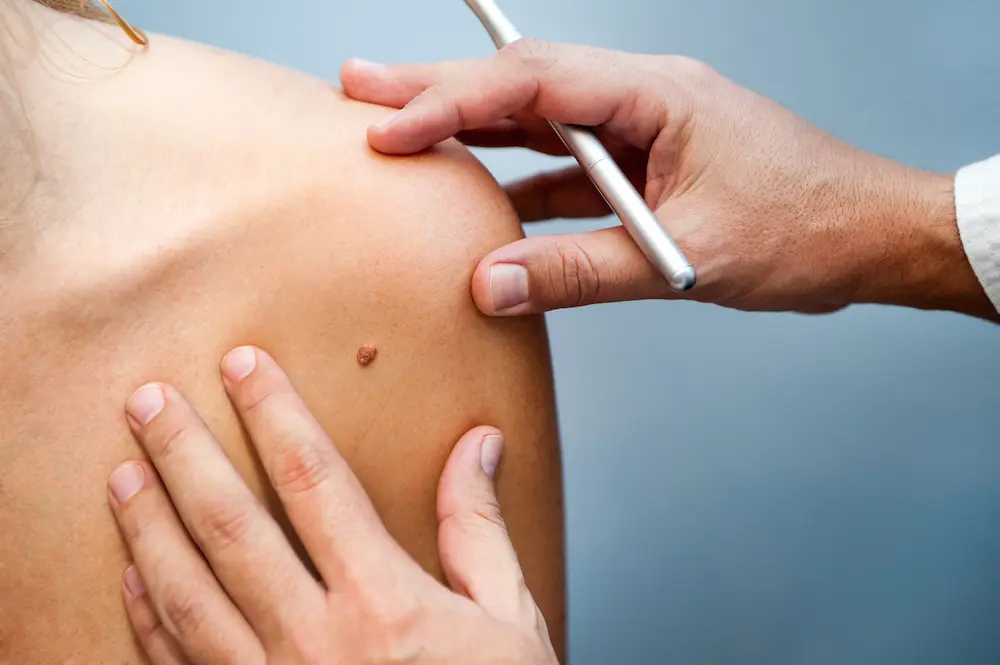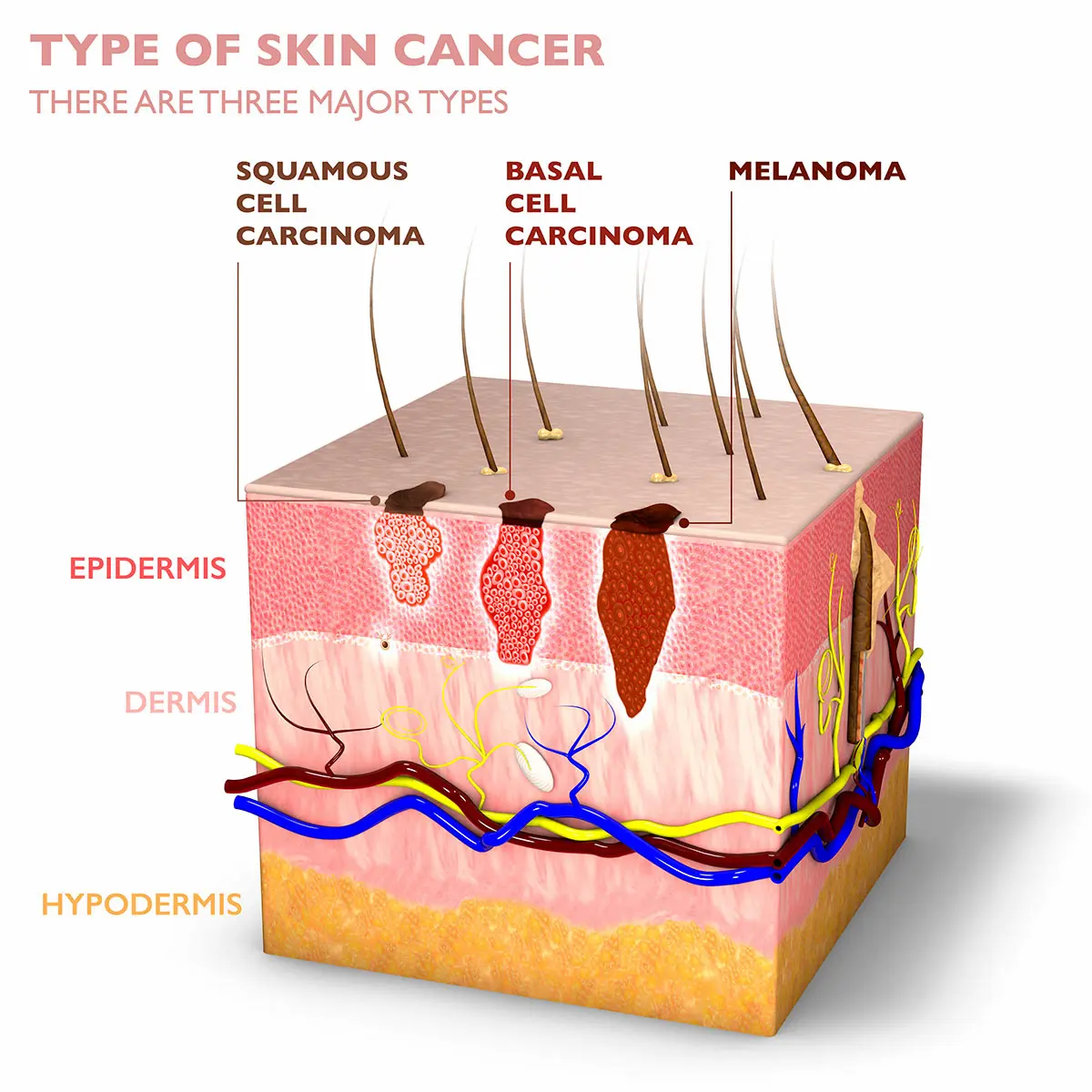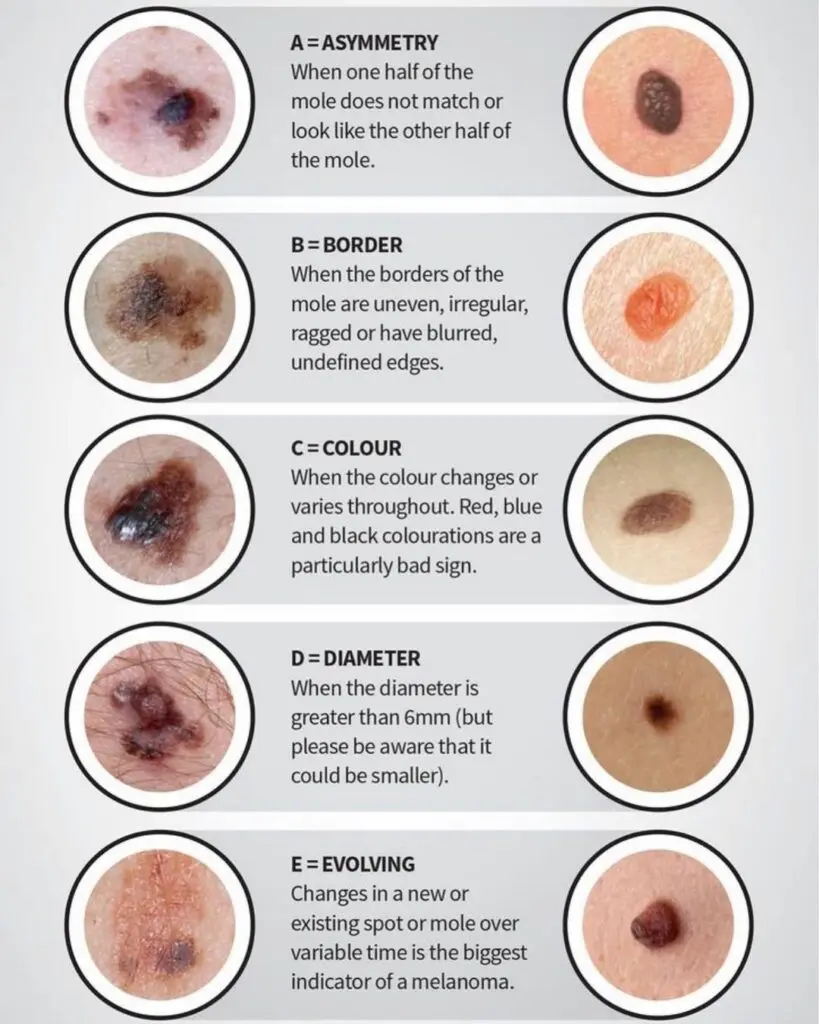
Skin cancer, including basal cell carcinoma, squamous cell carcinoma, and melanoma, develops in skin cells due to UV radiation exposure. Symptoms vary but often include changes in skin appearance. Diagnosis involves skin examinations, biopsies, and imaging tests. Treatment options include surgery, radiation therapy, chemotherapy, immunotherapy, and targeted therapy. Early detection and treatment significantly improve outcomes.
Skin cancer is a type of cancer that develops in the cells of the skin and is the most common form of cancer in Australia. At Hills Surgical Oncology, Dr Muzib Abdul-Razak, a leading Head and Neck Surgeon and Surgical Oncologist in Sydney, specialises in treating skin cancers that occur in the head and neck region. Skin cancer happens when skin cells grow abnormally, usually due to damage from sun exposure. While it can be serious, most skin cancers can be successfully treated if caught early.

There are several types of skin cancer, each named after the type of skin cell from which they arise. At Hills Surgical Oncology, located in Wahroonga and Norwest, Dr Muzib Abdul-Razak treats various types of skin cancer. The main types include:
This is the most common type of skin cancer. It develops in the basal cells, which are in the lower part of the epidermis (the top layer of skin). BCC rarely spreads to other parts of the body but can grow deep and wide, damaging surrounding tissue.
In some cases, BCC can become advanced, growing deep into the skin and nearby tissues. This can happen if the cancer is left untreated or if it's particularly aggressive. Advanced BCC can be more challenging to treat and may require more extensive surgery or other treatments.
This is the second most common type of skin cancer. It develops in the squamous cells, which are in the upper part of the epidermis. SCC is more likely than BCC to spread to other parts of the body if left untreated.
When SCC grows deep into the skin or spreads to other parts of the body, it's considered advanced. This can happen if the cancer is left untreated or if it's particularly aggressive. Advanced SCC requires prompt and often more intensive treatment.

While less common, melanoma is the most serious type of skin cancer. It develops in the melanocytes, which are the cells that produce pigment. Melanoma can spread quickly to other parts of the body if not caught early.As an experienced surgical oncologist in Sydney, Dr Muzib Abdul-Razak is skilled in identifying and treating these various types of skin cancer, including advanced cases.
The main cause of skin cancer is exposure to ultraviolet (UV) radiation from the sun or tanning beds. This UV exposure can damage the DNA in skin cells, leading to uncontrolled cell growth. However, several factors can increase your risk of developing skin cancer:
The symptoms of skin cancer can vary depending on the type. Here are some general signs to watch for:
If you notice any of these signs, especially in the head and neck area, it's important to consult your GP, dermatologist, or specialist like Dr Muzib Abdul-Razak at Hills Surgical Oncology promptly as early detection and treatment can significantly improve outcomes for skin cancer patients.

Diagnosing skin cancer involves several steps. At Hills Surgical Oncology, Dr Muzib Abdul-Razak uses a comprehensive approach to ensure accurate diagnosis:
Treatment for skin cancer depends on several factors, including the type and stage of the cancer, its location, and the patient's overall health. At Hills Surgical Oncology, Dr Muzib Abdul-Razak works closely with a team of specialists to provide comprehensive care. The main treatment options include:
Surgery is the primary treatment for most skin cancers. The type of surgery depends on the type, size, and location of the skin cancer:
As a highly skilled surgical oncologist in Sydney, Dr Muzib Abdul-Razak specialises in complex head and neck surgeries. He uses advanced techniques to remove skin cancers while preserving as much normal function and appearance as possible.
Radiation therapy uses high-energy rays to kill cancer cells. It may be used:
Chemotherapy uses drugs to kill cancer cells. It may be used:
Immunotherapy helps your immune system fight cancer. It's often used for advanced skin cancers or to help prevent recurrence after surgery.
These drugs target specific features of cancer cells. They're often used for advanced basal cell carcinomas or melanomas with specific genetic changes.
This treatment uses special drugs and light to kill cancer cells. It's sometimes used for very early skin cancers.Dr Abdul-Razak at Hills Surgical Oncology stays up-to-date with the latest advancements in skin cancer treatment. He works closely with each patient to develop a personalised treatment plan that offers the best chance of success while considering the patient's overall health and preferences.
Recovery from skin cancer treatment can vary depending on the type and extent of the treatment. At Hills Surgical Oncology, we're committed to supporting our patients throughout their entire recovery journey.After surgery, the initial recovery period typically lasts a few weeks. During this time, patients may need to:
For patients who've had extensive surgery in the head and neck area, rehabilitation may be necessary. This could include:
Patients who've had radiation therapy, chemotherapy, or immunotherapy may experience side effects that can last for several weeks or months after treatment ends. These may include fatigue, skin changes, and immune-related side effects.Long-term follow-up care is crucial for skin cancer survivors. Dr Muzib Abdul-Razak and the team at Hills Surgical Oncology provide ongoing monitoring to check for any signs of cancer recurrence and manage any lasting effects of treatment.
When facing a skin cancer diagnosis, choosing the right care team is crucial. Here's why patients in the Hills area, Wahroonga, Norwest, and throughout Sydney choose Hills Surgical Oncology:
If you're concerned about skin cancer or have been diagnosed with this condition, don't hesitate to reach out to Hills Surgical Oncology. Dr Muzib Abdul-Razak and our team are here to provide the expert care and support you need throughout your treatment journey. Remember, early detection and treatment are key to successful outcomes with skin cancer. Regular skin checks and prompt attention to any suspicious changes can make a significant difference. At Hills Surgical Oncology, we're dedicated to providing the highest quality care to help our patients overcome skin cancer and return to their normal lives.

Give our friendly receptionists a call on 1300 560 311 and they can help find a convenient time at all our locations. For urgent appointments, please let our receptionists know and we can try find the earliest time to see you.